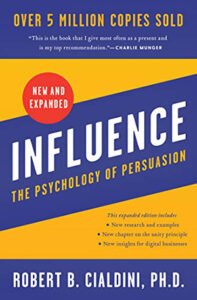|

|
Influence:
People not only favor members of their political parties but also believe them more, even under bewildering circumstances.
|
371 |
|
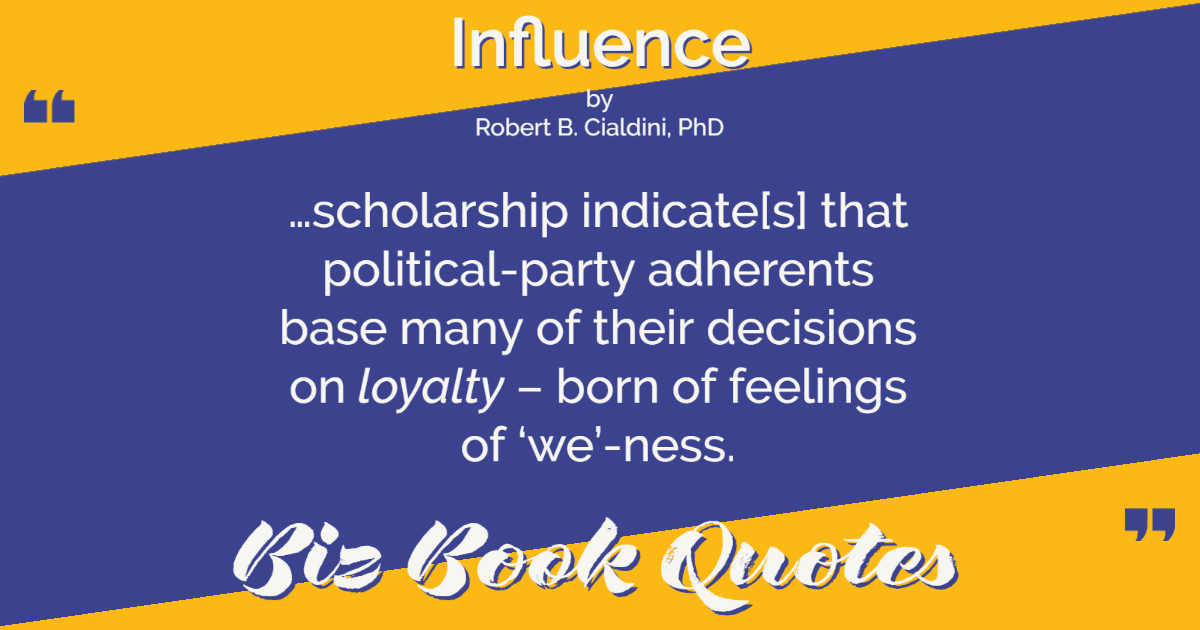
|
Influence:
…scholarship indicate[s] that political-party adherents base many of their decisions on loyalty – born of feelings of ‘we’-ness.
|
371 |
|
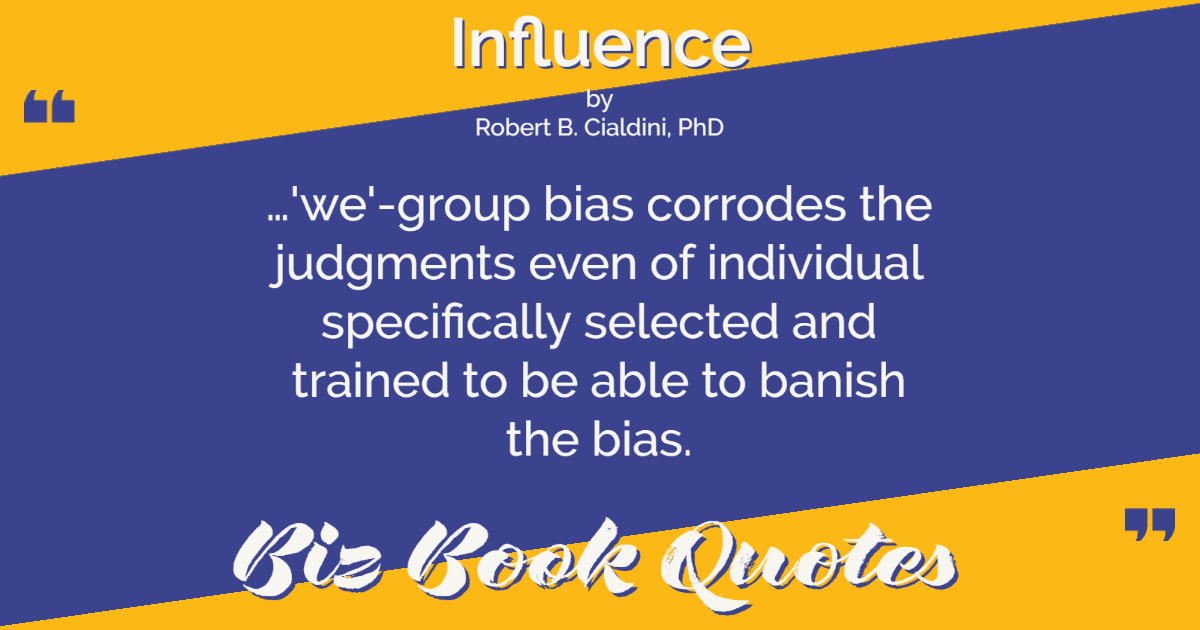
|
Influence:
…’we’-group bias corrodes the judgments even of individual specifically selected and trained to be able to banish the bias.
|
372 |
|
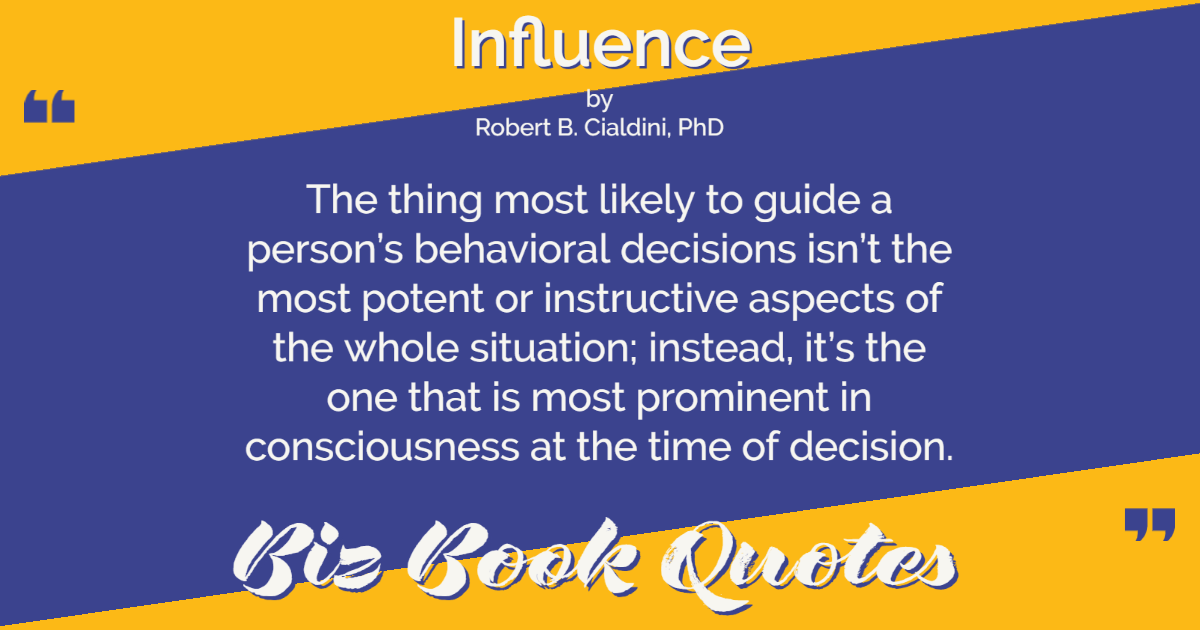
|
Influence:
The thing most likely to guide a person’s behavioral decisions isn’t the most potent or instructive aspects of the whole situation; instead, it’s the one that is most prominent in consciousness at the time of decision.
|
375 |
|

|
Influence:
Inside families, individuals are more helpful to kin they resemble. Outside the family unit, people use facial feature similarities to judge (fairly accurately) their degree of genetic relatedness to strangers.
|
385 |
|
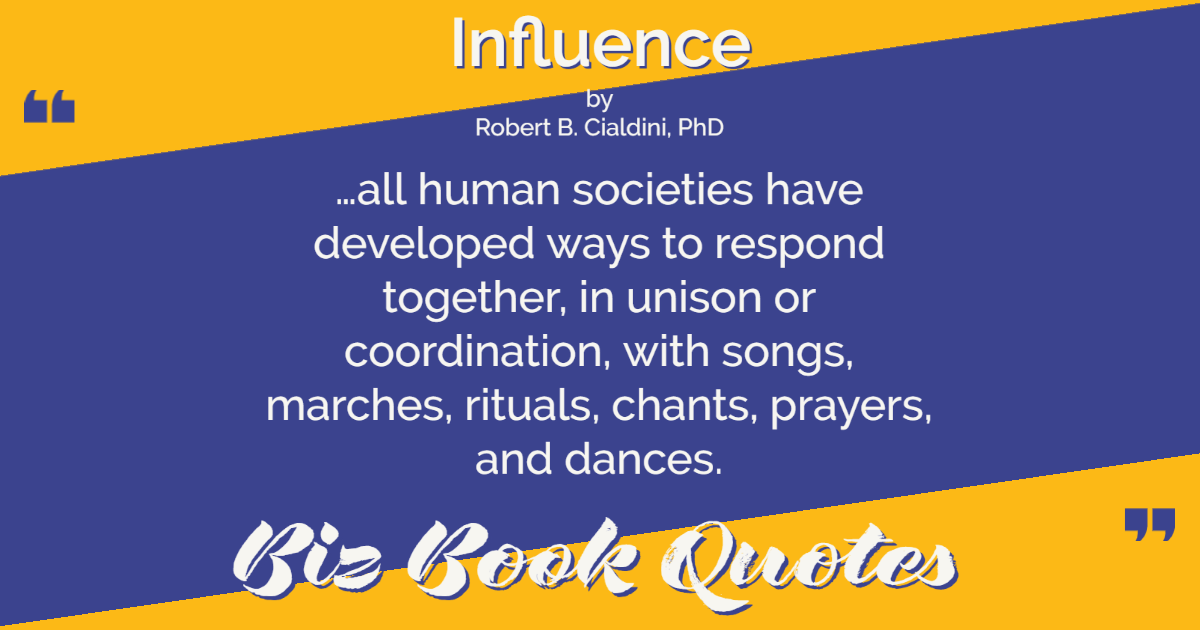
|
Influence:
…all human societies have developed ways to respond together, in unison or coordination, with songs, marches, rituals, chants, prayers, and dances.
|
396 |
|
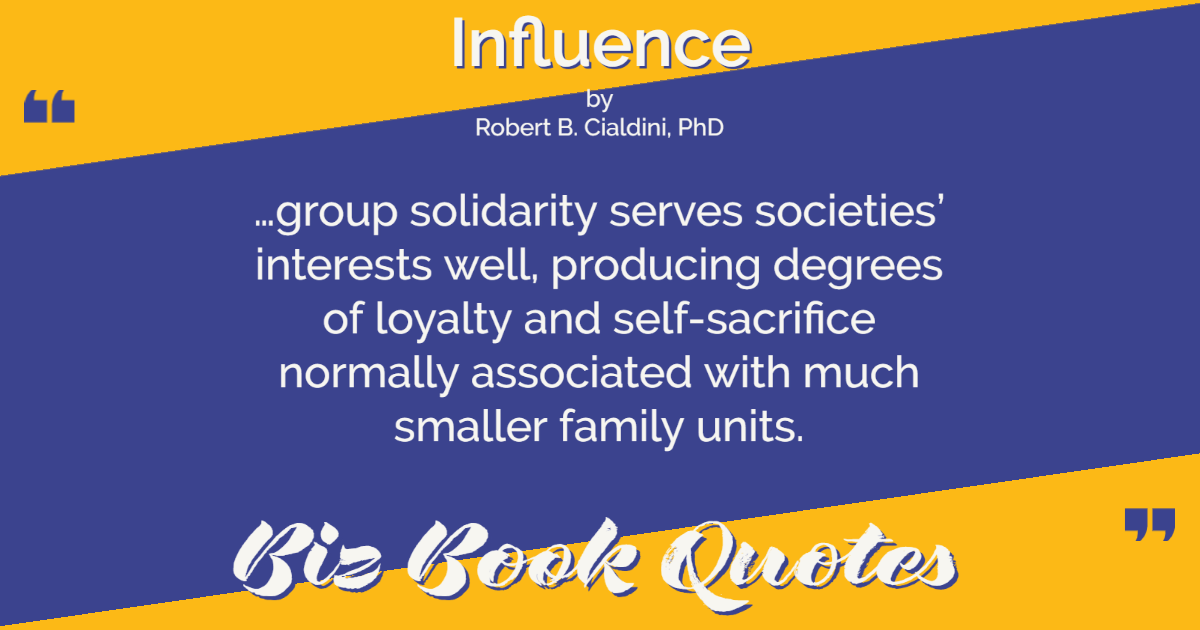
|
Influence:
…group solidarity serves societies’ interests well, producing degrees of loyalty and self-sacrifice normally associated with much smaller family units.
|
397 |
|
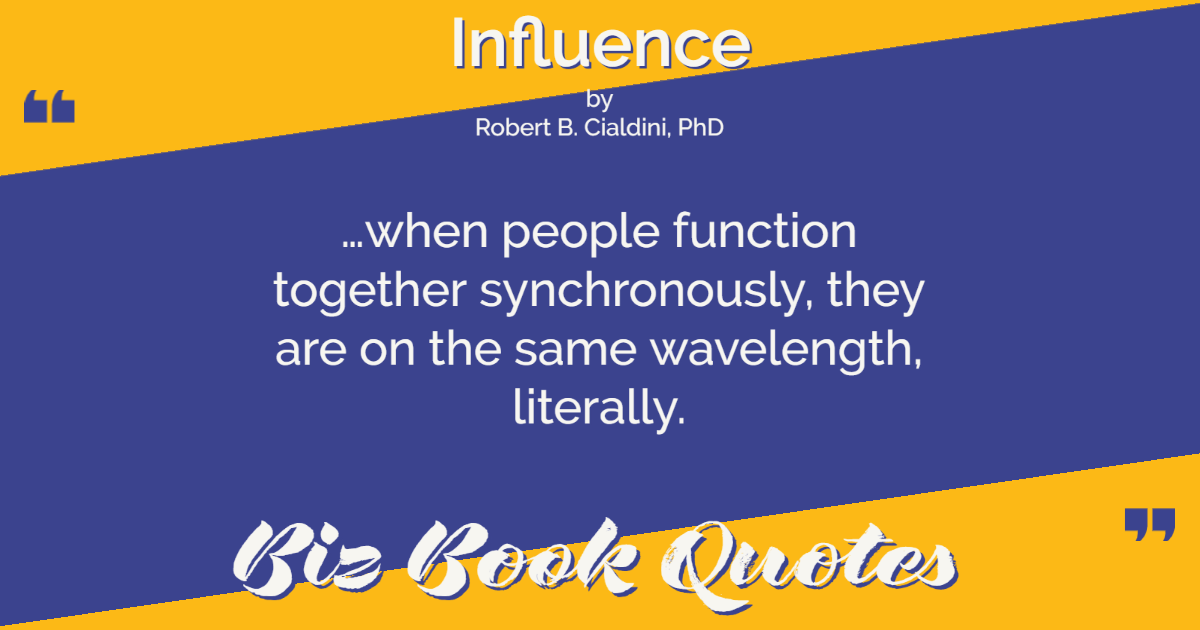
|
Influence:
…when people function together synchronously, they are on the same wavelength, literally.
|
398 |
|
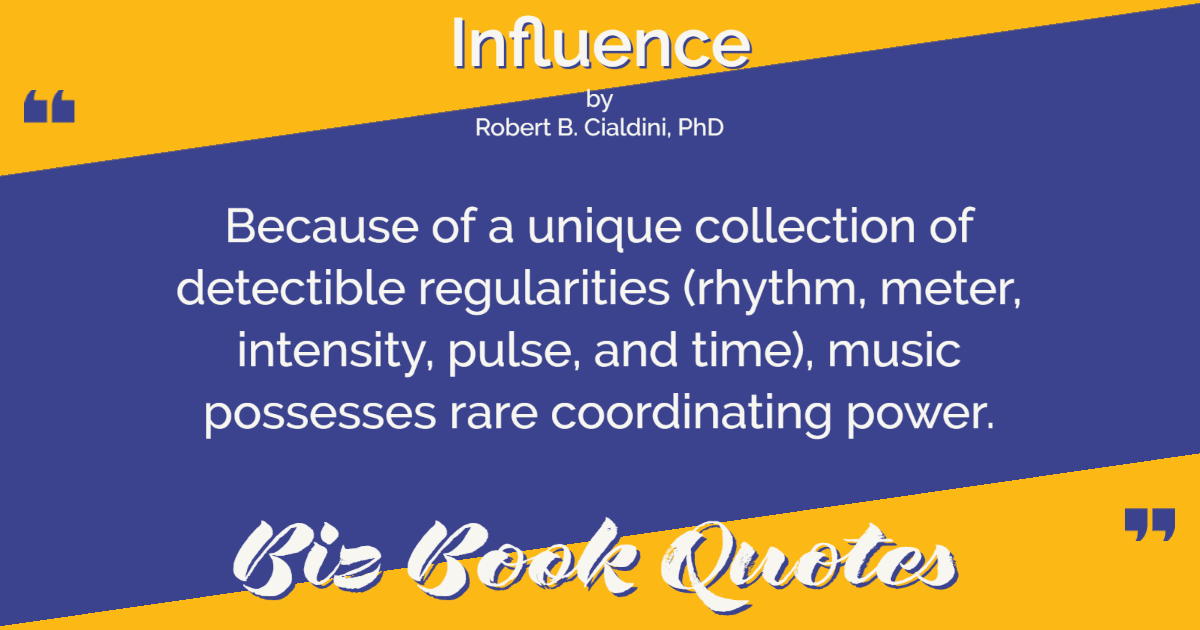
|
Influence:
Because of a unique collection of detectible regularities (rhythm, meter, intensity, pulse, and time), music possesses rare coordinating power.
|
401 |
|
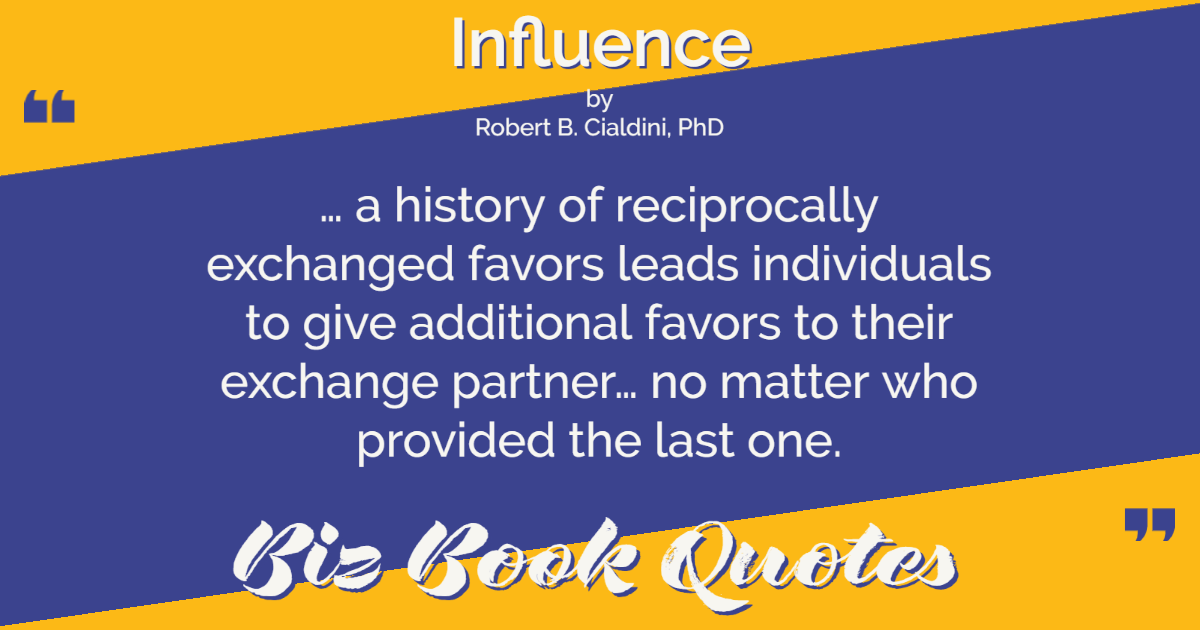
|
Influence:
… a history of reciprocally exchanged favors leads individuals to give additional favors to their exchange partner… no matter who provided the last one.
|
406 |
